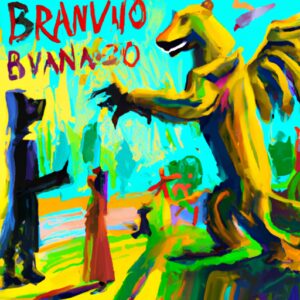“Bravo” is an Italian word that you’ll often hear from Italians.
It is popularly known as something “good”, but what is the real meaning of bravo in Italian?
What is bravo in Italian?
Bravo is one of the many Italian words that have been adopted by American English. It is mostly used in theaters or at concerts or with a sarcastic tone when a friend does something goofy.
But have you ever asked yourself what’s the meaning of bravo?
Most of us use it mindlessly, as it has become a fixed expression that doesn’t need many explanations in English. Others just assume that bravo means something like “good“.
However, if you’re trying to learn Italian, you should go a little deeper, as there are many things to know about the word bravo.
For instance, did you know that you have to declinate it according to gender? Or that it used to mean “cruel” and can still have a negative meaning when paired with other words?
If you didn’t, don’t worry: we’ll fix that in a few minutes!
Feminine and plural forms of bravo
Although many English speakers use bravo as a gender-neutral term, this word has a feminine form and a plural form. As for most Italian words, the difference lies in the final vowel:
- male singular: bravo;
- male plural: bravi;
- feminine singular: brava;
- feminine plural: brave;
So, if you’re complimenting an actress or a female singer for her performance, make sure not to misgender her and say brava.
But why do we say bravo (or brava) after a performance?
The history of the word bravo
Since it is used as a compliment, does bravo mean good? Well… yes, today it does. There are some nuances, but we’ll see them later. However, things have not always been this way.
In fact, bravo used to mean something completely different in the past.
Its etymology is uncertain, but bravo once meant something like “thug” or “cruel” and was used to describe mercenaries, assassins, and a whole range of very unfriendly people.
It still had this meaning during the 19th century. If you ever have a chance to read Alessandro Manzoni’s novel “The Betrothed“, you’ll notice that the hired thugs who serve Don Rodrigo are called bravi or bravoes, indeed.
“Their mustachios were long, and curled at the extremities; the margin of their doublets confined by a belt of polished leather, from which were suspended, by hooks, two pistols; a little powder-horn hung like a locket on the breast; on the right-hand side of the wide and ample breeches was a pocket, out of which projected the handle of a knife, and on the other side they bore a long sword, of which the great hollow hilt was formed of bright plates of brass, combined into a cypher: by these characteristics they were, at a glance, recognised as individuals of the class of bravoes.”
This old negative meaning echoes today in expressions like notte brava (“wild night”, a night of extreme partying).
So, how did the meaning of bravo evolve from negative to positive? Well, this probably happened during the 15th and 16th centuries.
The Italian kingdoms were constantly invaded by other countries. And when they weren’t, their biggest cities were at war with each other.
In such a context, being bravo meant being capable of surviving. So, the word started to mean “able”.
The two meanings coexisted for a while, then the negative one slowly disappeared (except for a couple of fixed expressions). Bravo went on to mean “valiant” and, later on, “good“.
The modern meaning of bravo
So, with a couple of exceptions, the modern meaning of bravo is “good”, and people use it mostly to complement each other.
But how do you use bravo in a sentence? In the USA, this word is mostly limited to artistic contexts and has sarcastic connotations when used otherwise.
In Italy, on the other hand, people use it every time they want to congratulate someone for something they did or said.
Oh, bravo, hai riparato il vaso!
Oh, good, you fixed the vase!
Sometimes they also use its superlative form: bravissimo.
Hai passato il test? Bravissimo, andiamo a festeggiare!
You passed the test? Very good, let’s celebrate!
You may have heard this last form in the most famous verse from Rossini’s opera “The Barber of Seville” when the protagonist Figaro mimics all the compliments he receives from his clients:
“Ah, bravo Figaro! Bravo, bravissimo! Fortunatissimo per verità!”
“Ah, worthy Figaro! Worthy, superb! Most fortunate for sure!”
These, however, are just exclamations. Of course, you can also use bravo as an adjective.
Sei proprio un bravo bambino!
You’re really a good kid!
Dovevi vederli: hanno spostato tutti i mobili in meno di un’ora. Sono stati bravissimi!
You should have seen them: they moved all the furniture in less than an hour. They’ve been really good.
Finally, is there a situation in which it is wrong to say bravo? Yes: you can use bravo only when talking about people or animals (remember that it used to mean “capable” once?).
If you’re boasting the qualities of an inanimate object and you want to say it’s good, you’ll have to say “buono” instead of “bravo”.
Questa minestra è davvero buona.
This soup is really good.
Tell yourself bravo for learning a new word
Today you learned:
- The meaning of bravo;
- How its meaning changed from negative to positive;
- And how to compliment people in Italian;
If you have time, you’ve also found a famous opera and an important Italian novel to check out. They’ve both worth it and will improve your understanding of Italian culture.
I think that’s enough for today. See you soon to learn the next Italian word.
And if you want to take some practice, check out our free Italian lessons in the meantime!









